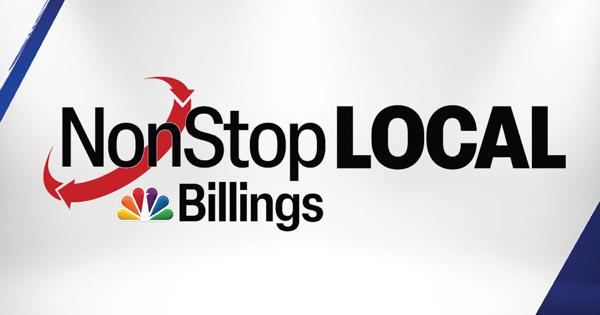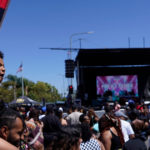TOPEKA, Kan. (AP) — Kansas legislators approved a bipartisan plan on Tuesday with the aim of attracting the Kansas City Chiefs away from Missouri by assisting in funding a new stadium for the Super Bowl champions.
The bill, passed by the Republican-controlled Legislature and sent to Democratic Gov. Laura Kelly, would allow Kansas to issue bonds covering up to 70% of the costs for a new stadium in the state for the Chiefs and another for Major League Baseball’s Kansas City Royals. The plan also encourages the teams to relocate their practice facilities to the Kansas side of the metropolitan area, which is divided by the border of the two states.
Over a 30-year period, Kansas would pay off its bonds using revenues from sports betting, Kansas Lottery ticket sales, as well as new sales and alcohol taxes collected from shopping and entertainment districts surrounding the new stadium sites.
Korb Maxell, an attorney for the Chiefs residing on the Kansas side of the border, expressed excitement about the state lawmakers “embracing the possibility of the Chiefs and the Royals” and being able to make a “very compelling offer” to the NFL team.
“We’re excited about what happened here today,” he said after the bill cleared the Legislature. “This is incredibly real.”
The votes were 84-38 in the House and 27-8 in the Senate. While Kelly did not commit to signing the stadium-financing bill, she praised the effort behind it in a statement.
“Kansas now has the opportunity to become a professional sports powerhouse,” she said.
Lawmakers in Kansas view the two teams as potential options due to voters on the Missouri side of the Kansas City metropolitan area rejecting an extension of a sales tax in April that helped maintain the teams’ existing stadiums, located adjacent to each other.
Top Republicans in the GOP-controlled Legislature had pledged that the stadium proposal would not be discussed until a plan was approved to reduce income and property taxes by a total of $1.23 billion over the next three years. Many legislators argued that taxpayers would be displeased if the state financed new stadiums without cutting taxes.
“We definitely need to demonstrate that we’re providing relief to our citizens,” said Senate President Ty Masterson, a Wichita-area Republican who supported the stadium-financing plan.
Kelly called a special session to consider tax reductions after vetoing three tax-cutting proposals prior to the end of the regular annual session on May 1. Once the legislators convened the special session, Kelly had no control over the topics considered, leading to the possibility of discussing the stadium-financing plan.
First introduced in late April, a version of the plan did not receive a vote before the adjournment. The plan would have enabled state bonds to finance all stadium construction costs, but the version passed by lawmakers on Tuesday would limit the amount to 70% and necessitate approval from legislative leaders and the governor for any bonding plan.
House Commerce Committee Chair Sean Tarwater, a Republican from the Kansas City area, estimated that the Chiefs could invest between $500 million and $700 million in private funds for a new stadium.
“There are no blank checks,” Tarwater told GOP colleagues during a briefing on the plan prior to the House debate.
A new nonprofit organization, Scoop and Score, formed last month to advocate for bringing the Chiefs to Kansas. The organization, along with the Royals, hired over 30 lobbyists for the special session. However, the national free-market, small-government group Americans for Prosperity and the Kansas Policy Institute, a free-market think tank, oppose the measure and have influenced conservative Republicans.
Free-market conservatives have historically opposed state and local subsidies for individual businesses or projects. Numerous studies conducted by economists over the years have shown that subsidizing sports stadiums is not cost-effective.
“Most of the money spent on the Chiefs would likely have been spent on other entertainment ventures,” said Andrew Zimbalist, an economics professor at Smith College and author of multiple books on sports economics.
Missouri officials have expressed willingness to do whatever necessary to retain the teams, but have not presented any proposals.
“Today largely revolved around leverage,” said Kansas City, Missouri, Mayor Quinton Lucas. “And the teams are in a very strong leverage position.”
The lease for the two teams’ stadium complex expires in January 2031, but Maxwell noted that planning renovations for the team’s Arrowhead Stadium should commence seven or eight years in advance.
“There is an urgency to this,” added David Frantz, the Royals’ general counsel.
Proponents of the stadium plan argued that the past research conducted by economists does not apply to the Chiefs and Royals. They contended that the bonds would be repaid with tax revenues that are currently not being generated and would never exist without the stadiums or the surrounding development. Masterson refuted claims that the bonds are a subsidy.
Maxwell added, “For a town to be major league, they need major league teams.”
However, economists specializing in sports economics noted that similar arguments have been common in debates over stadium financing in the past. They indicated that development around a new stadium would reduce development elsewhere, where the tax revenue generated would typically fund services or schools.
“It could potentially benefit Kansas while possibly hurting Missouri to the same extent,” Zimbalist said. “It’s a zero-sum game.”
Copyright 2024 The Associated Press. All rights reserved. This material may not be published, broadcast, rewritten or redistributed without permission.





